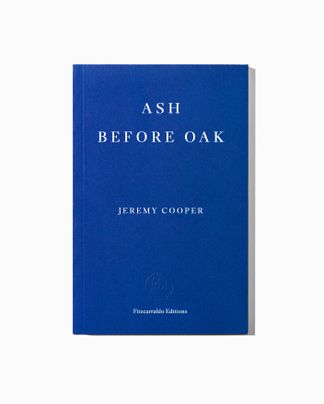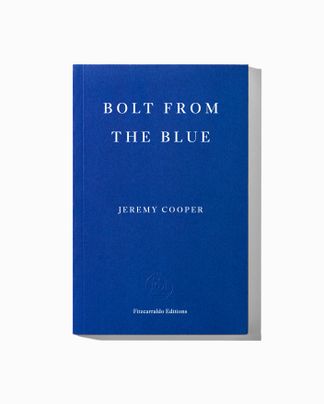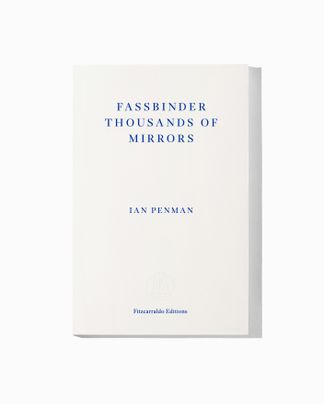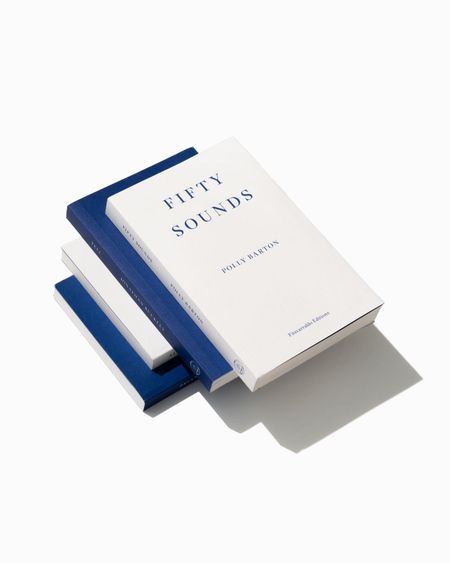Perennially on the outside, Brian has led a solitary life; he works at Camden Council, lunches every day at Il Castelletto café and then returns to his small flat on Kentish Town Road. It is an existence carefully crafted to avoid disturbance and yet Brian yearns for more. A visit one day to the BFI brings film into his life, and Brian introduces a new element to his routine: nightly visits to the cinema on London’s South Bank. Through the works of Yasujirō Ozu, Federico Fellini, Agnès Varda, Yilmaz Güney and others, Brian gains access to a rich cultural landscape outside his own experience, but also achieves his first real moments of belonging, accepted by a curious bunch of amateur film buffs, the small informal group of BFI regulars. A tender meditation on friendship and the importance of community, Brian is also a tangential work of film criticism, one that is not removed from its subject matter, but rather explores with great feeling how art gives meaning to and enriches our lives.
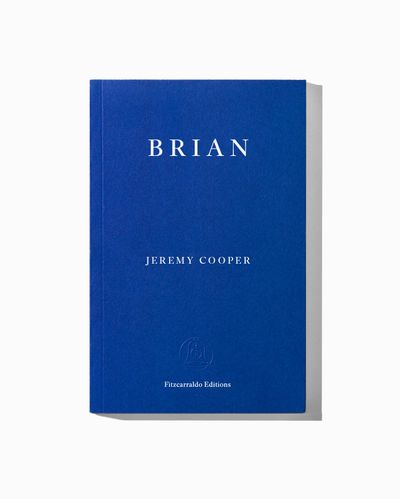
Brian
French paperback with flaps, 184 pages
Published 24 May 2023
Brian
Brian became a regular at the BFI in stages. He did everything carefully, testing the water up and down the beach before taking the occasional swim. Prior to this big change in his life, he had gone to the movies casually, half a dozen times a year, maybe more, to the cinema nearest to wherever he was living. Though Brian was keen on film, his nervous concern focused on work, on holding down his job, leaving little energy for anything else, content to spend most evenings in front of the television with a mug of tea and packet of Chocolate Creams, his favourite biscuit. Without knowing quite why, or needing to find out, since missing its release a decade earlier he had always wanted to see Clint Eastwood in The Outlaw Josey Wales, a clip from the trailer fixed in permanent memory, the moment when a bounty hunter tracking Eastwood muttered to his partner: ‘Not a hard man to follow. Leaves bodies everywhere.’ Brian adored this remark, and used to repeat it under his breath at moments of stress during the day, to beneficial effect. He could not now recall where he had heard about a revival screening at the British Film Institute down on the South Bank, just when he had given up hope of ever seeing the movie. Grateful for such a good thing happening to him, by chance, unexpected, unearned, Brian bought himself a ticket.
It was excellent, not in the least bit disappointing, stuffed with tenderness and vengeance. Eastwood, who directed as well as starred, spent much of the film in the saddle and for this feat of skill and endurance promptly became Brian’s movie idol. For other reasons too: the lyri-
cism of the Texan landscape through which Josey Wales pursued without mercy the Unionist guerrillas, killers of his wife and children; and for the depiction of peasant farmers of Missouri as people with hopes and pain.
This was only the second time Brian had been to the BFI, twenty years after his first visit, when he was nineteen, taken to see Kes along with two other youngsters by the manager at their hostel, to show them, Mr Trevor had said, that positive things do sometimes turn up, replacing hardship. Or something like that. It felt long ago, a period from which Brian had managed to move on, without ever finding a comfortable alternative place for himself.
Throughout the early years of his working life Brian had tried as best he could to participate, handicapped by never knowing what to say to anyone. Within a group of people he felt pushed to the periphery, quickly aware that nobody much minded whether he turned up or not. He had joined a book-reading club, mostly of women, jolly, middle-aged, who ridiculed his proposals of novels to read, listened in silence to his halting comments on the book-of-the-month and moved promptly on to topics of their own concern. In another attempt at company, he took up football. Not playing, of course, he was hopeless at sport, but watching, becoming a home supporter at
West Ham. This was a failure too, leaving him post-match on Saturday evenings with an even greater sense of isolation. At the time he had liked the idea of being part of a loyal crowd and it was the individual men nearby on the terraces who troubled him, their spray of shouted abuse at the opposition, the tribal jokes and gang laughter. He longed to be included, and dreaded it, equally. During these interim years he had had various jobs and an assortment of rented rooms. His first place in London was the one he had liked best, the dormitory in the St Pancras hostel where he had stayed for years, until Mr Trevor felt obliged to turf him out for being far beyond the age limit. He had eventually ended up alone in his present small rented flat above the Taj Mahal on Kentish Town Road, which he found perfectly adequate.
In the process of settling into his new home Brian had taken four long walks from the front door, north, south, east and west, needing the security of a physical sense of where he lived. At home on dark winter evenings after work he wanted, for safety’s sake, accurately to picture in his head the streets and houses and shops around him. It was on one of these exploratory tours that he had come across Talacre Gardens, after which he regularly took the short walk down Prince of Wales Road for a constitutional twice round the perimeter of the park and, in the summer, to sit and read on a bench. The seat he liked best, in the shade of a horse chestnut tree, was near one of the playgrounds, surrounded by a low wire fence over which balls and balloons escaped and which Brian used to retrieve and throw back. Two boys, brothers Brian guessed from their matching clothes and blond hair, invented the ritual game of deliberately tossing the balls out again, urging Brian to trot across the grass to pick them up and throw them back inside.
There was lots of laughter, from Brian too.
Walking slowly home, Brian thought of his own brother, Peter, nine years his senior, with whom he was unable to remember ever laughing. They barely knew each other, had never lived in the same house. Brian stopped suddenly in the street, muttering to himself, and stamped on the pavement several times one foot after the other, furious that playing with those two nice boys had awakened images of Peter and his father and their treatment of his mother.
With an effort he managed to clear his head of unwanted family memories and continued on into Kentish Town Road.
At Talacre one weekend a woman had walked over to Brian’s bench and introduced herself as Dorothy, Camden Council’s manager of the playground. She had noticed the gentle way he had been playing with the children on and off all summer and, being short of staff at weekends, she wondered if he might agree to keep volunteer-watch over the facility for a fixed couple of hours on Sunday mornings. The thought of community participation, of acceptance within a worthwhile group of local people delighted Brian and when, as it always seemed to, everything fell apart he felt especially hurt.
Two mothers had complained about his unqualified status and, with regret, Dorothy asked him not to come again. For his own sake it might be safest if he did not visit the gardens at all for the time being, Dorothy warned, as his accusers were a vindictive pair.
Brian’s instinctive act of self-protection was to narrow his free time down to film.
For several years he had promised himself he would become a member at the British Film Institute, failing to do so for no reason other than the trepidation he generally felt about doing anything new. The Talacre Gardens fiasco impelled urgent action and after a visit to the watch-repairer in The Cut on a Saturday afternoon not long after seeing The Outlaw Josey Wales, Brian grasped the moment, walked on over to the South Bank and filled in the inexpensive BFI membership form. He felt a rush of rightness as he placed a copy of the month’s programme in his bag to study at home. From then on, he booked in for a screening at least every couple of weeks, berating
himself for not having done so sooner.
Why ever not, he wondered. Why had he delayed till he was almost forty to do something so obviously right for him?
(…)
Prospect Books of the Year 2023
‘Easily the best novel I’ve read this decade.’
— Olivia Laing, Guardian
‘Brian is affecting, funny and, at 184 pages, a skilfully compressed chronicle of one man’s life and the cornucopia of film that enriches it.’
— Max Liu, Financial Times
‘[The] novel’s celebration of ordinariness and anonymity … it’s a quiet and even melancholic vision …Cooper gives us chronology without event, people without relationships, art without identification, agglomeration without purpose. And so we are forced to focus on what’s left – the structure of a life story, mediated through art, but not redeemed by it.’
— Clair Wills, New York Review of Books
‘What makes Jeremy Cooper’s seventh novel appealing and convincing is the author’s serene prose and tender, understated empathy…. This is an affectionate, thoughtful portrait of a gentle soul.’
— David Collard, Times Literary Supplement
‘Cooper does a superb job of inhabiting this singular character’s point of view, and of deftly weaving into the narrative Brian’s thoughts and feelings about the films he sees. I was delighted by the book’s gentle humor and lucid prose style, and I can think of no finer exploration of what can happen when a person is fully open and attentive to art, and how a shared passion for art can connect people to one another.’
— Sigrid Nunez, New Yorker
‘I don’t think I’ve ever felt such warmth for a character, or that I’ve been able to see cinema through another’s eyes in such a lucid, sustained way. As Brian moves further and further into a life of moviegoing, ordering his days, and then years, around it, he finds companionship and a calm sense of wellbeing. As I read this beautifully subtle novel, I found the same.’
— Amina Cain, author of A Horse at Night
‘After having published his luminous Ash Before Oak, Jeremy Cooper now brings us Brian, equally a work of mysterious interiority and poetry. It confirms that however solitary life might be, art enriches both our imaginations and our realities. This is a very tender book.’
— Xiaolu Guo, author of A Lover’s Discourse
‘There’s a strange magic to Jeremy Cooper’s writing. The way he puts words together creates an incantatory effect. Reading him is to be spellbound, then. I have no idea how he does it, only that I am seduced.’
— Ben Myers, author of The Offing
‘Jeremy Cooper’s work is consistently haunting and layered, built on a refreshing trust in the reader to delve deeper behind the quiet insinuations of his prose. His work resists every modern accelerant, creating a patient and precise tonic. He is easily one of the most thoughtful British fiction writers working today.’
— Adam Scovell, author of How Pale the Winter Has Made Us
‘This novel achieves a great deal with its close insistence on the dignity of a quiet life invigorated by the most defamiliarising art form of them all.’
— Jonathan Gharraie, Review 31
‘A novel of simmering cinephilia…. Told in close third person, Brian unfolds neutrally and with little at stake, the frictionless description of the extremely circumscribed life of its protagonist often segueing to plot synopses and analyses of the scores of movies he takes in.’
— Melissa Anderson, Bookforum
‘Every city has its Brians. Every cinema has its Brians. Still, in his looping disassociation, Cooper’s Brian recalls not just Bartleby … and Prufrock … but also a particularly English lineage of introverts and isolates.’
— Sukhdev Sandhu, 4 Columns
‘Somewhere between a novel and a work of film criticism, Cooper’s book is a celebration of the amateur enthusiast, and a reminder of why we all need art in our lives.’
— Lucy Scholes, Prospect Books of the Year
Praise for Bolt From the Blue
‘A novel in epistolary form, the writer and art historian’s latest work is both an intimate account of a mother-daughter relationship and a lively history of London’s art scene. It is October 1985 when Lynn moves to the capital to study at Saint Martin’s, later making a successful career as an artist. She and her mother, who is back at home in Birmingham, begin a 30-year-long written relationship – via letters, postcards and emails. Their contact is irregular, and by turns affectionate and combative, making the relationship feel engrossing, deep and utterly true.’
— New Statesman
Praise for Ash before Oak
‘Low-key and understated, this beautiful book … is a civilised and melancholy document that slowly progresses towards a sense of enduring, going onwards, and even new life. It feels like a healing experience.’
— Phil Baker, Sunday Times

